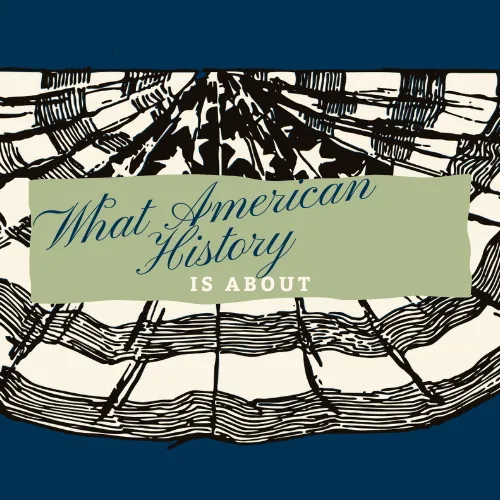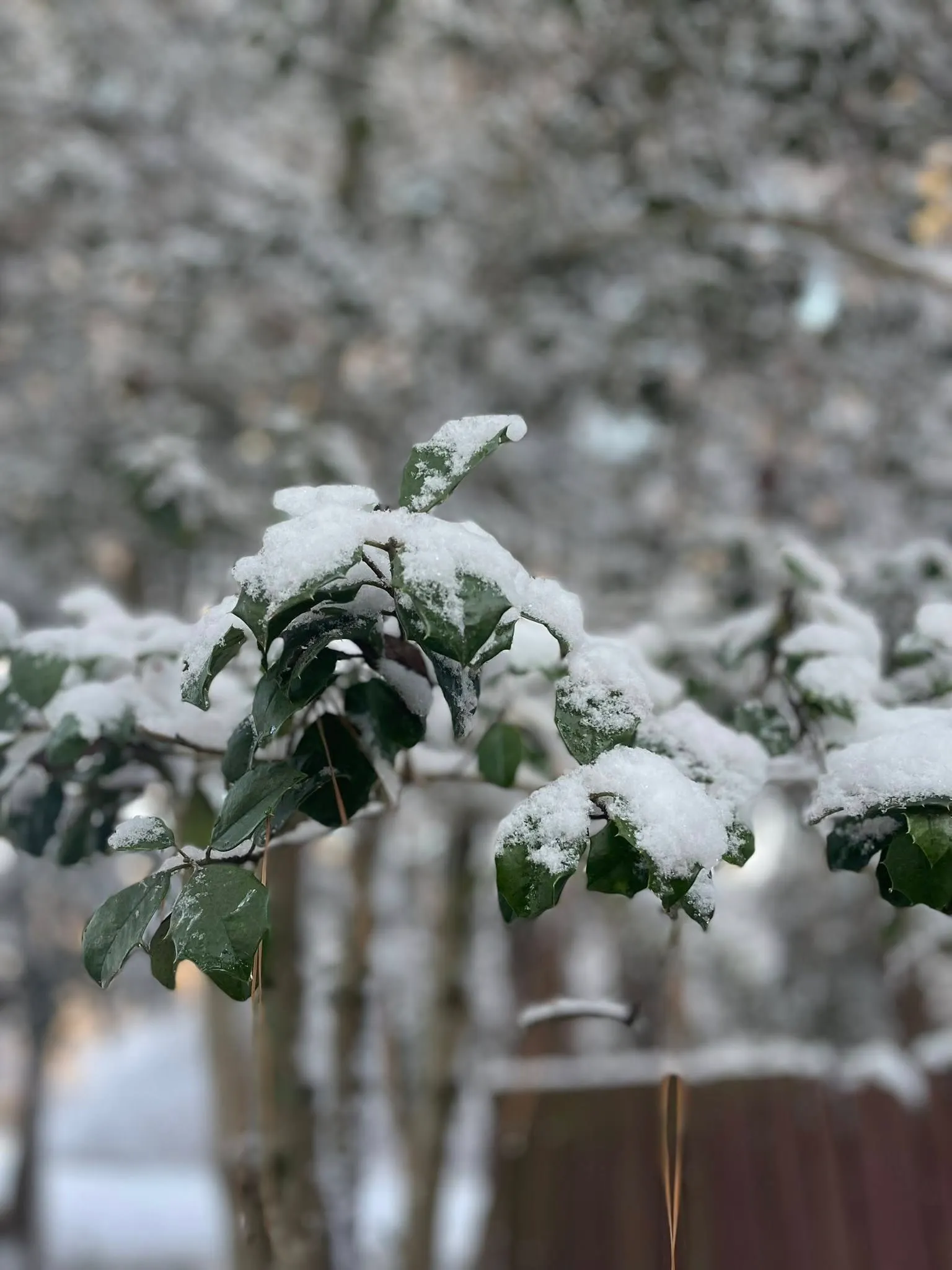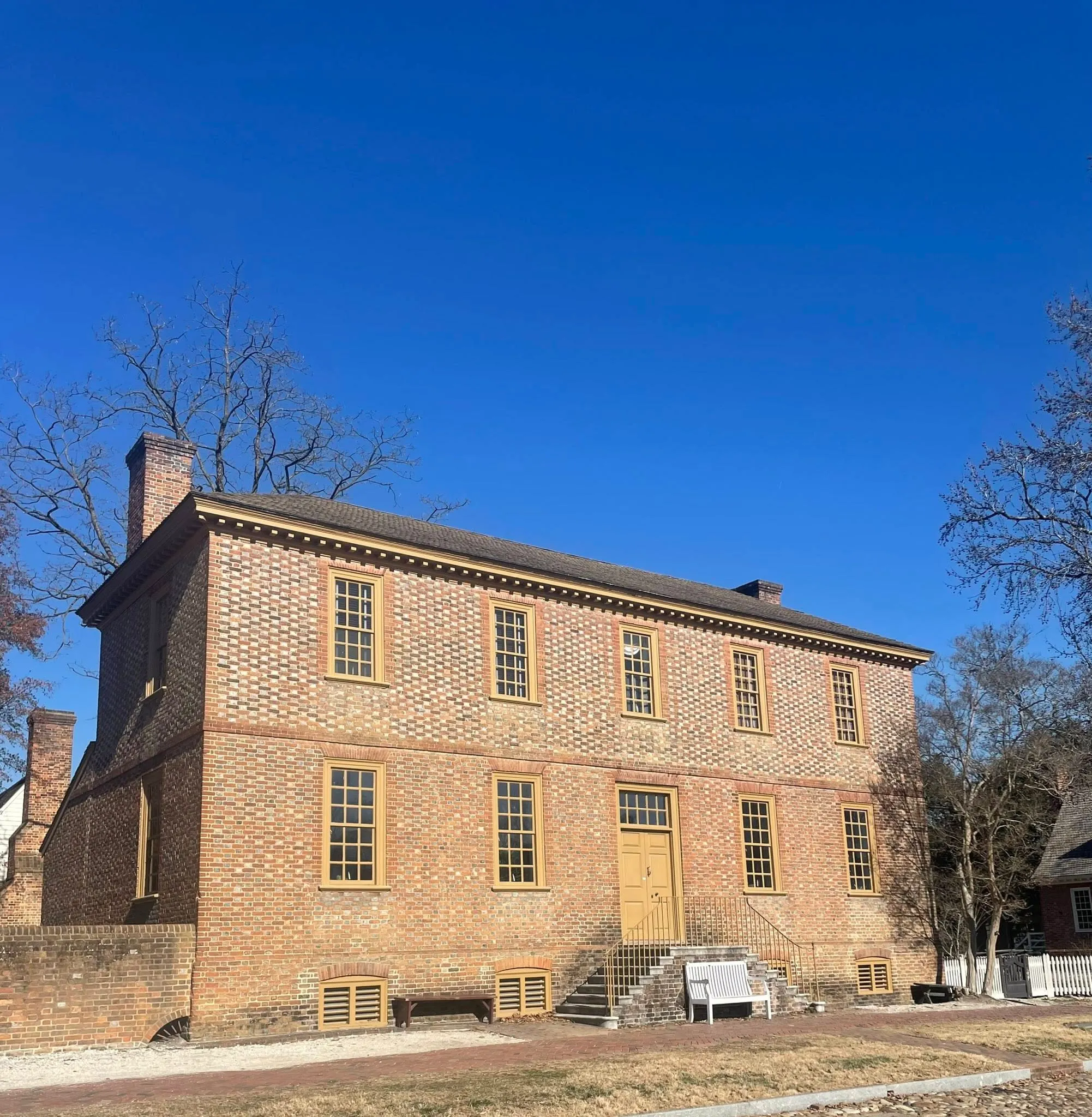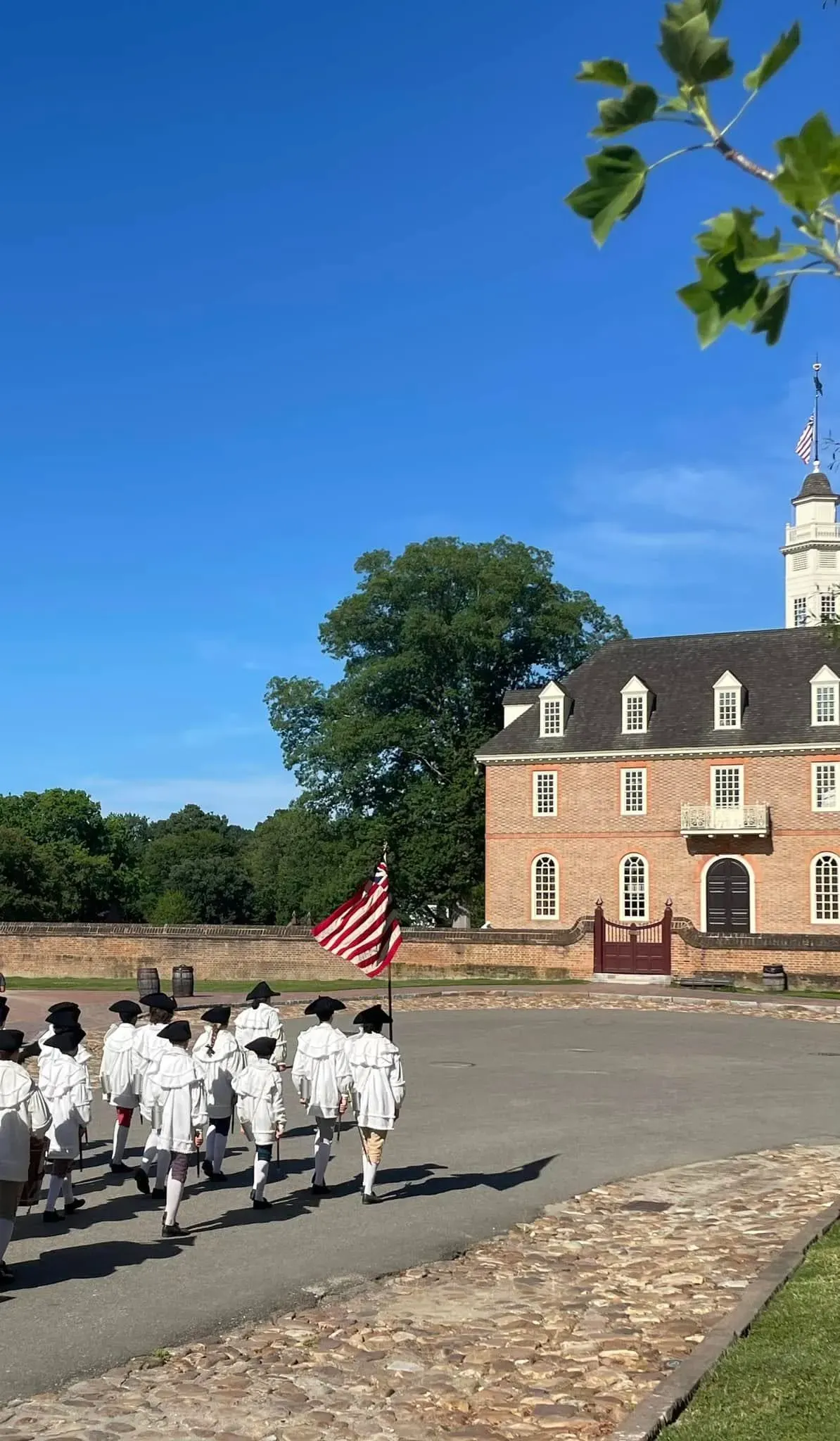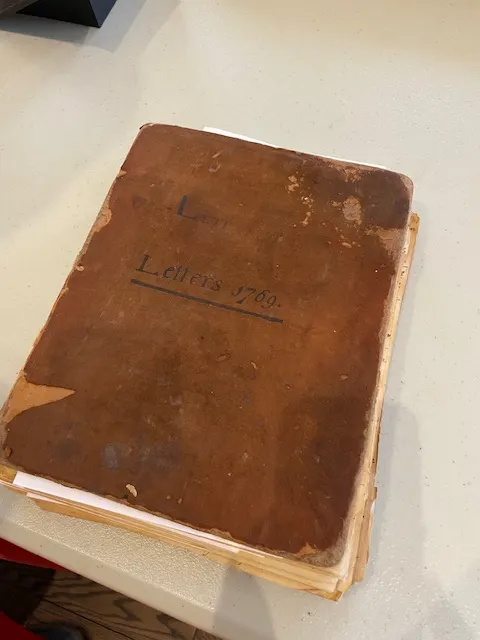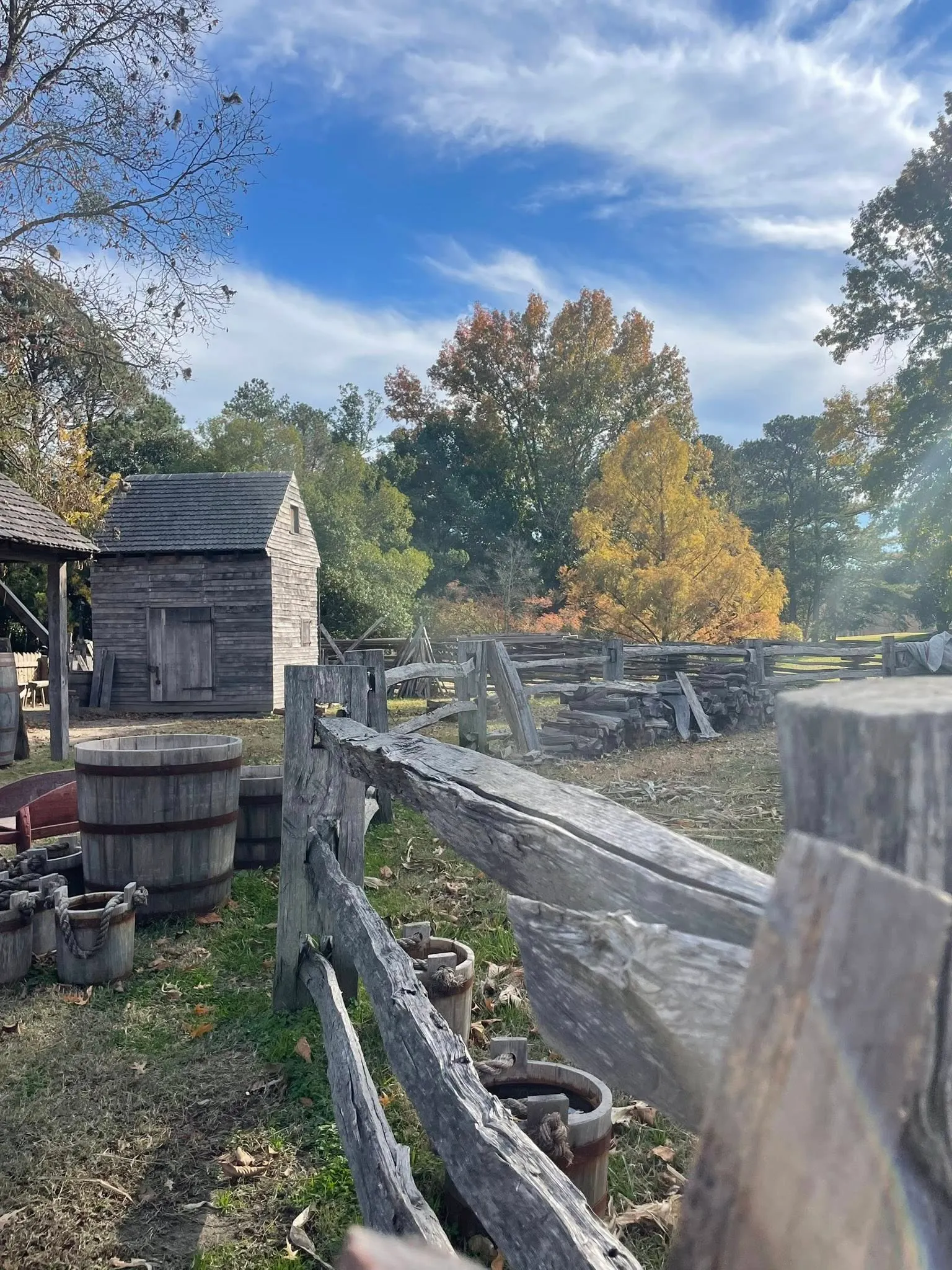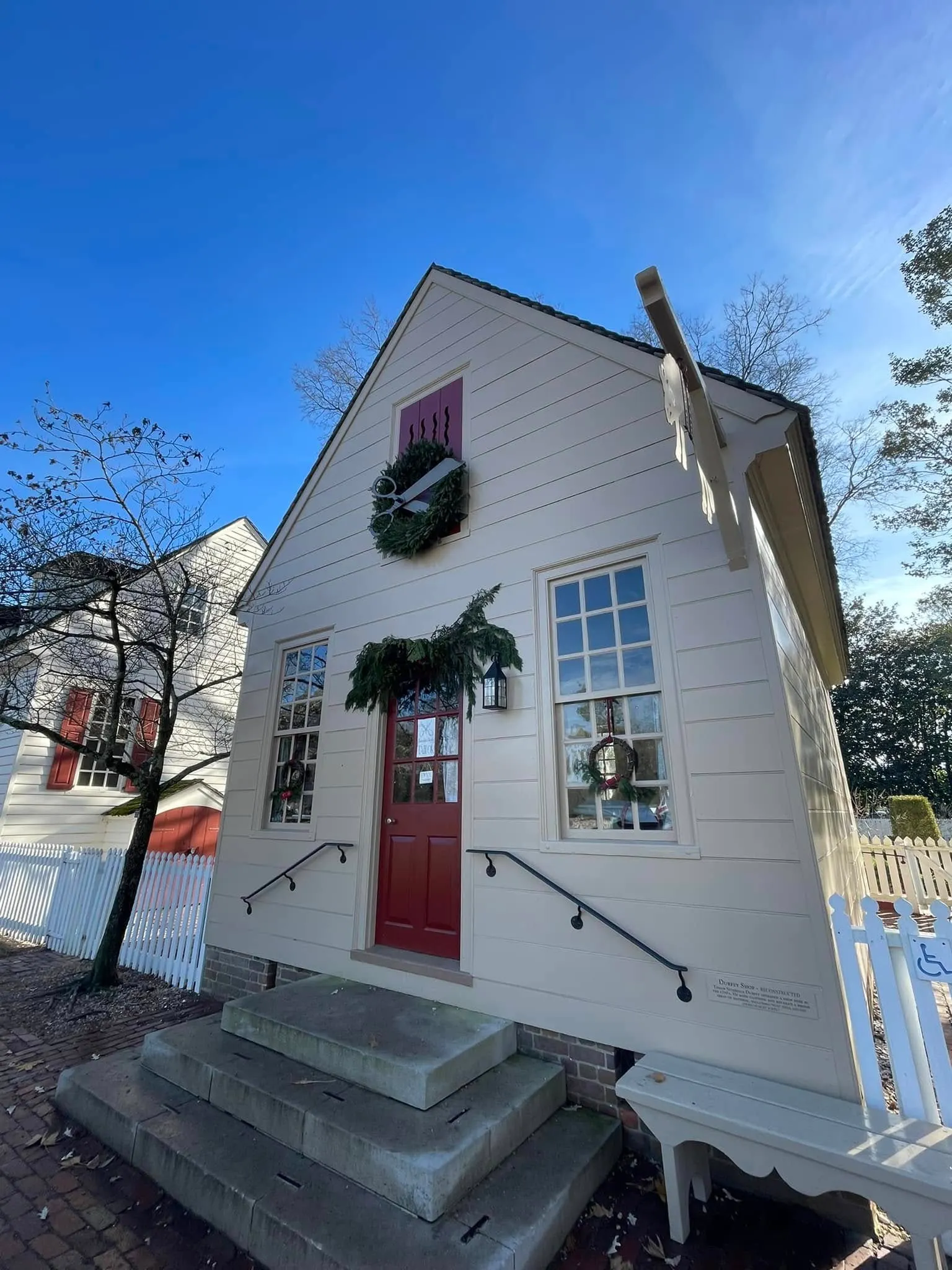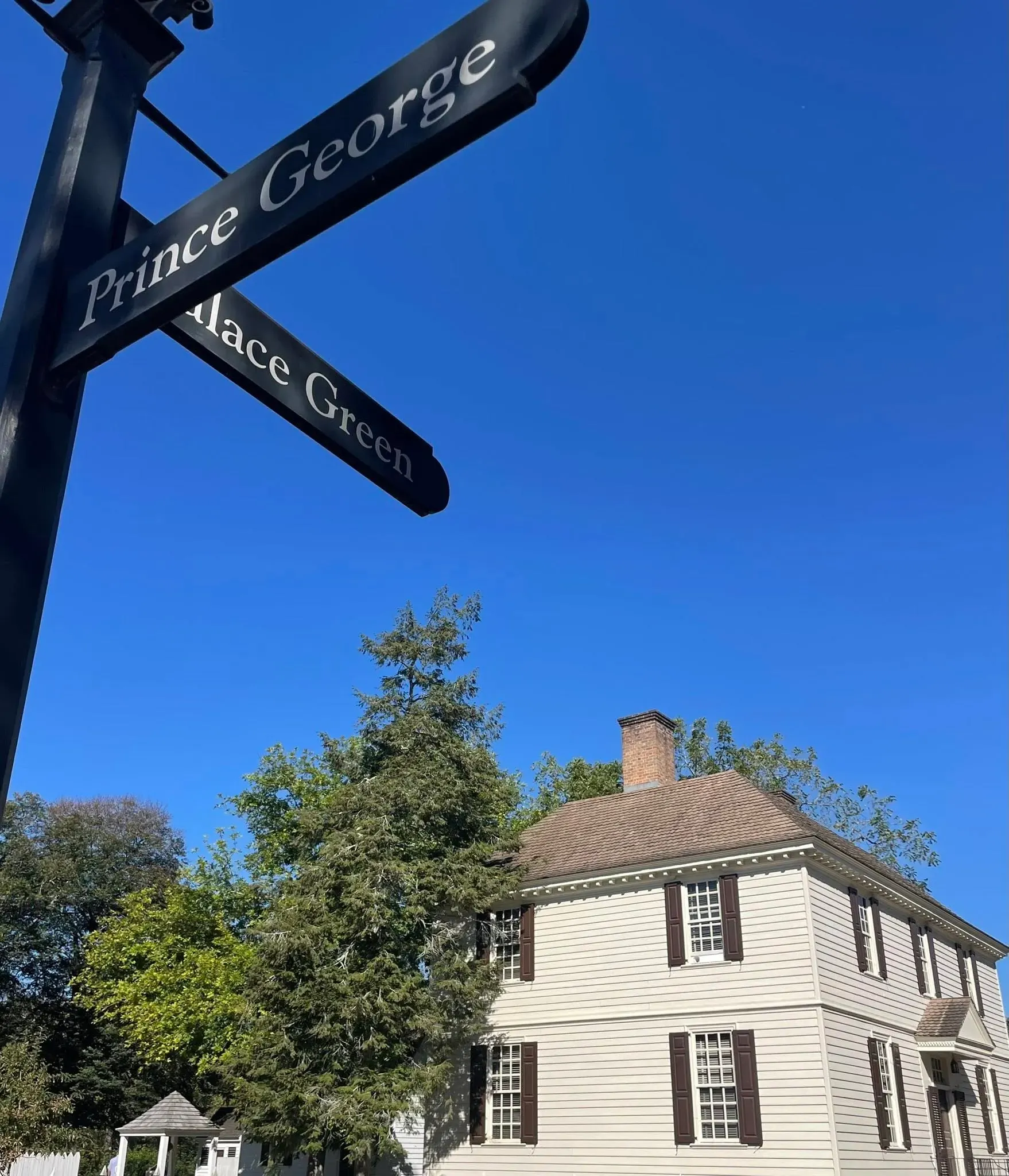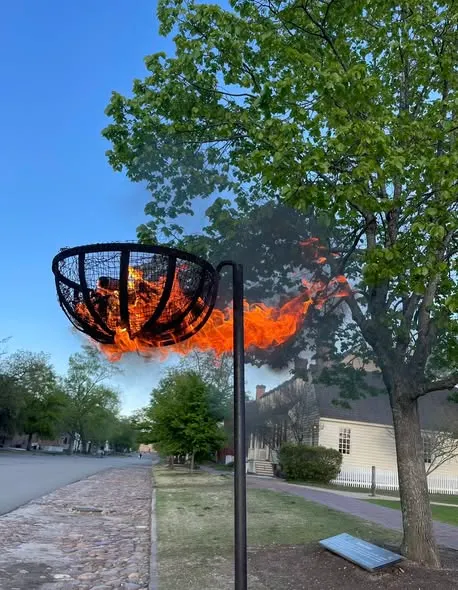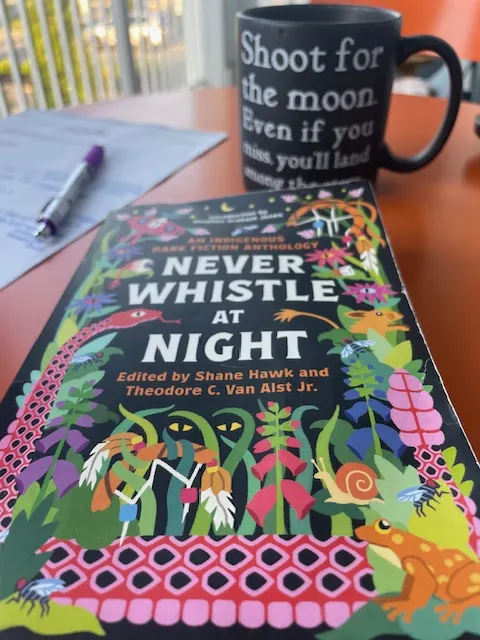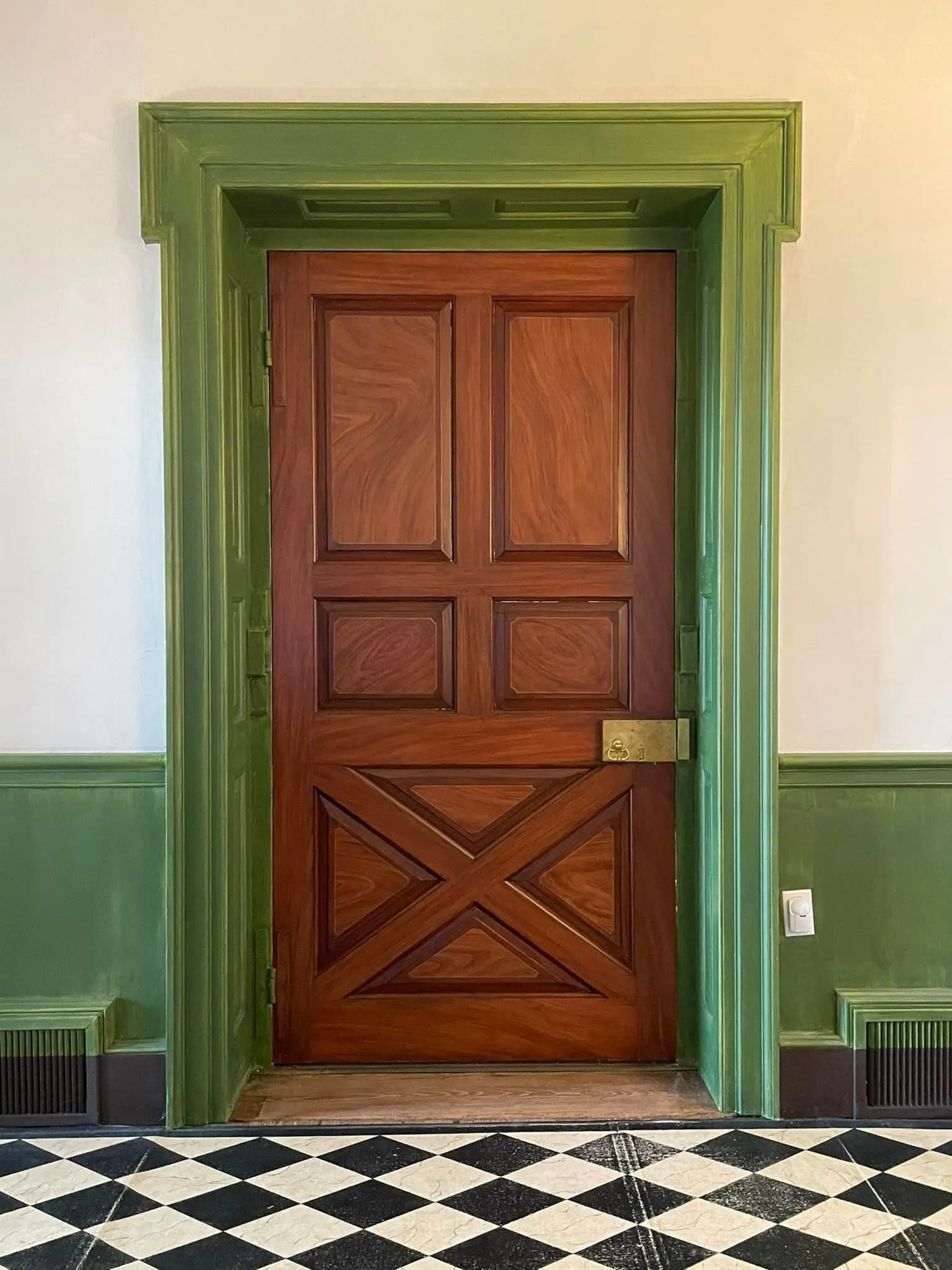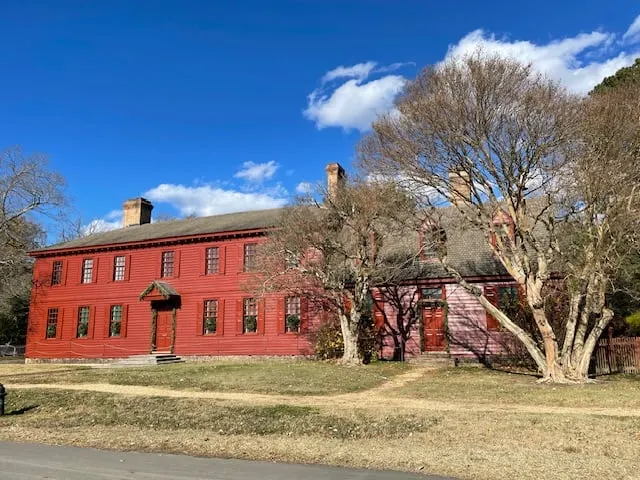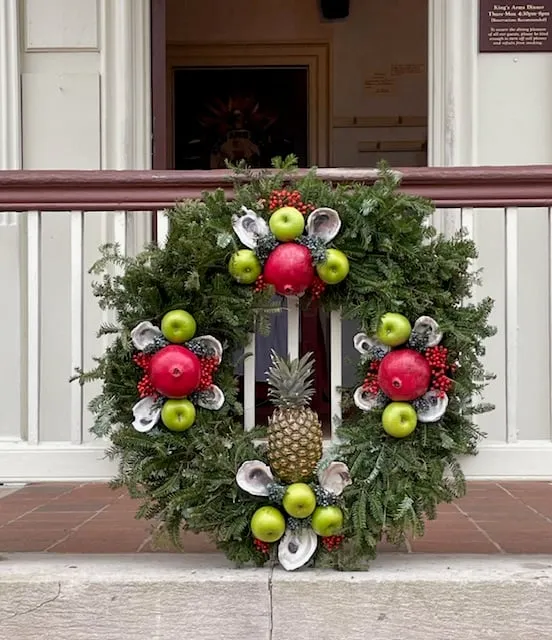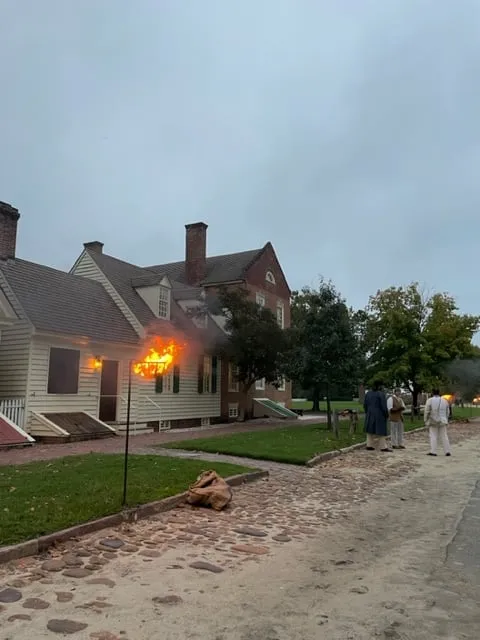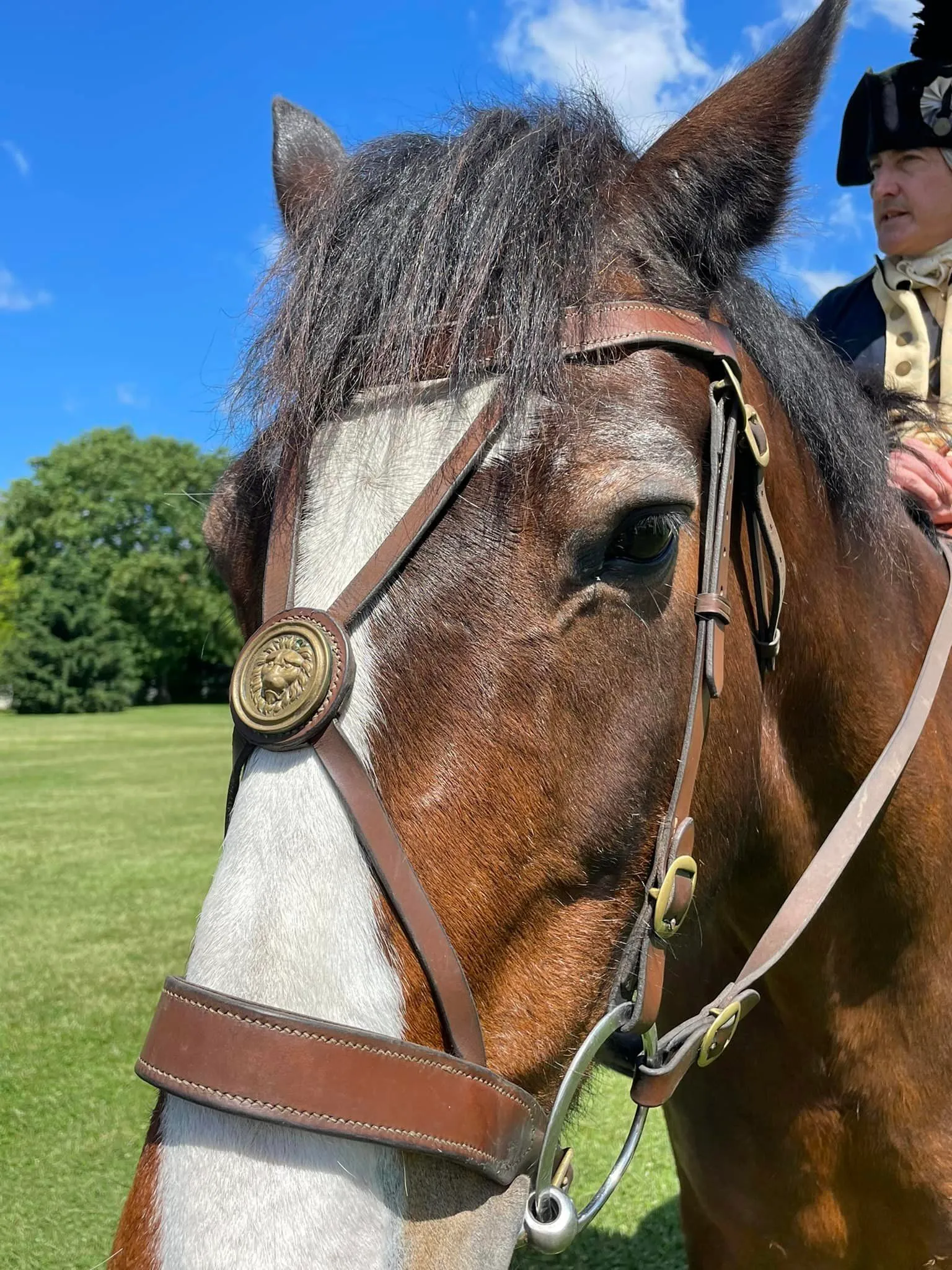Today I Learned About George Washington From a Scholar Named Peter Henriques
Where did I learn about George Washington today and why was it significant?
Being a resident of Williamsburg and having the historic area on my doorstep is ridiculously spectacular. It just is. Colonial Williamsburg (CW) offers insight into early American history like nowhere else: it is the largest living history museum in the world and it's home to the Hennage Auditorium, where history comes alive through performances. And sometimes... lectures.
As someone who cannot get enough history, I'm truly blessed to live here.
That said, hearing from a scholar of George Washington, who is also an author and college professor, brought me a different perspective today. The Life and Character of Washington lecture series is simply amazing.
RELATED: Click here to see the details of series.
Necessary disclaimer: As a blogger, I use affiliate links sometimes! I may receive commission from purchases I share; it does not change your price but sometimes you might get a discount.
Who is Peter Henriques?
Peter Henriques was introduced by his son today (I love that BTW!). He's made learning about George Washington a decades-long process and has written multiple books - and yes, you can even get them on Amazon here.
Mr. Henriques has been with George Mason University in Northern Virginia since the 1970s and is a resident historian and expert on the region, where George Washington is from (for anyone unfamiliar with the area of Virginia where Washington's home Mt. Vernon is located.)
It's not lost on me how fortunate I am to have the ability to see him on stage before he sets aside the microphone and lecture pointer to retire from public speaking.
A few notes from today's lecture, which focused on learning about George Washington's early years.
- There is little information via primary sources about George Washington in his younger years. More information really comes about as he enters into military service, specifically surrounding the French and Indian War (aka the Seven Years' War).
- The only time Washington left America was when he traveled to Barbados with his half-brother Lawrence, whose health was deteriorating. It was on this trip that George contracted small pox, and was immunized to it... as you may know small pox was a deadly disease that spread during the Revolution.
- Washington became a surveyor at age 17. He took this 'job' to earn income and create opportunity for himself. (because he was not intended to inherit wealth as a son of his father's second marriage). He became familiar with the western frontier, which helped him militarily and also was able to invest in land of his own.
- The Fairfax family, neighbors near Mt. Vernon, played an integral role in helping Washington succeed. His job as surveyor is credited to them, but he also spent time at their Belvoir estate where he developed social contacts and understanding of wealthier families. The name may sound familiar - in the 18th century, Lord Fairfax owned most of the Northern Neck of Virginia.
These are just a few things I learned from Mr. Henriques, but more importantly I gained insight; specifically insight into the magnitude of how complex Washington the man really is and why scholars like Mr. Henriques are so passionate.
And thank goodness we've had Daniel Cross in the recent past and continue to have Ron Carnegie here most every day to portray this complex man. Because they use primary sources... and because the more eyes there are on those sources and expert historians there are to interpret them, the more we will understand about Washington.
RELATED: This article on CW's website was written by Mr. Henriques and dives into Washington's relationship with his mother, Mary Ball Washington.
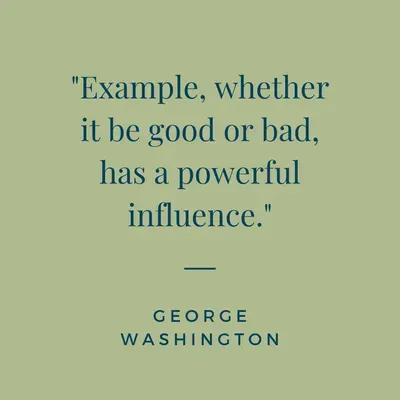
Always seek out scholars if you want to learn about history!
I'm guessing that no matter where you live, you have access to someone who has studied an aspect of history in-depth. Find those people! Attend their lectures if you have the opportunity. Get every perspective possible.
Live presentations, offering the ability to ask questions in real-time are an exceptional way to learn history - so get to it!
And please share information about any amazing lectures you've attended in the comment section- I want to hear about it.
Updated November, 2024- I'm adding a link to my latest post about George Washington. Click here to read it.
I'm also adding a link to my latest find: History Unboxed, whose educational materials impressed me and my home-school mom friend Krista SO MUCH. If you want to dive into more of George Washington:
Click here for the box dedicated to the French and Indian War.
Click here for the American Revolution Box.
Click here for their full American History curriculum set.
Closing words from history.
As always, I'll close with some words from history, pulled from my favorite primary source site. It's a letter Mr. Henriques shared in part during his presentation- showing Washington's audacious request for a commission, opening with a disclaimer that he shouldn't get the top post. Take it for what it is- feel free to interpret it your way:
From George Washington to Richard Corbin, February–March 1754
To Richard Corbin
[February–March 1754]
Dear Sir:
In a conversation at Green Spring1 you gave me some room to hope for a commission above that of a Major, and to be ranked among the chief officers of this expedition. The command of the whole forces is what I neither look for, expect, nor desire; for I must be impartial enough to confess, it is a charge too great for my youth and inexperience to be intrusted with. Knowing this, I have too sincere a love for my country, to undertake that which may tend to the prejudice of it. But if I could entertain hopes that you thought me worthy of the post of Lieutenant-colonel, and would favour me so far as to mention it at the appointment of officers, I could not but entertain a true sense of the kindness.
I flatter myself that under a skilful commander, or man of sense, (which I most sincerely wish to serve under,) with my own application and diligent study of my duty, I shall be able to conduct my steps without censure, and in time, render myself worthy of the promotion that I shall be favoured with now.
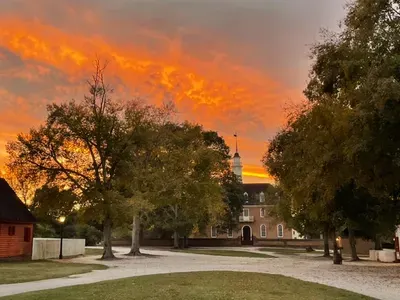
Capitol at Williamsburg (reconstructed)
Are you enjoying the blog? Tip me using my online tip jar- keep me caffeinated!
There is a huge practical disclaimer to the content on this blog, which is my way of sharing my excitement and basically journaling online.
1) I am not a historian nor an expert. I will let you know I’m relaying the information as I understand and interpret it. The employees of Colonial Williamsburg base their presentations, work, and responses on historical documents and mainly primary sources.
2) I will update for accuracy as history is constant learning. If you have a question about accuracy, please ask me! I will get the answer from the best source I can find.
3) Photo credit to me, Daphne Reznik, for all photos in this post, unless otherwise credited! All photos are personal photos taken in public access locations or with specific permission.
